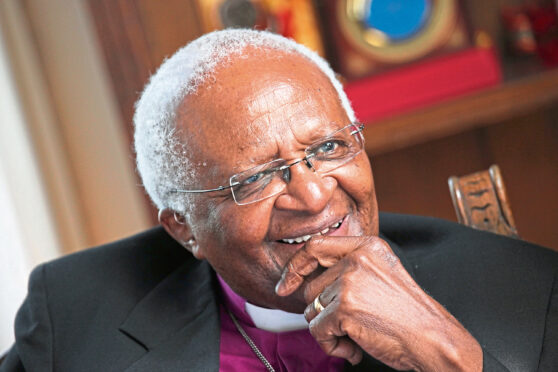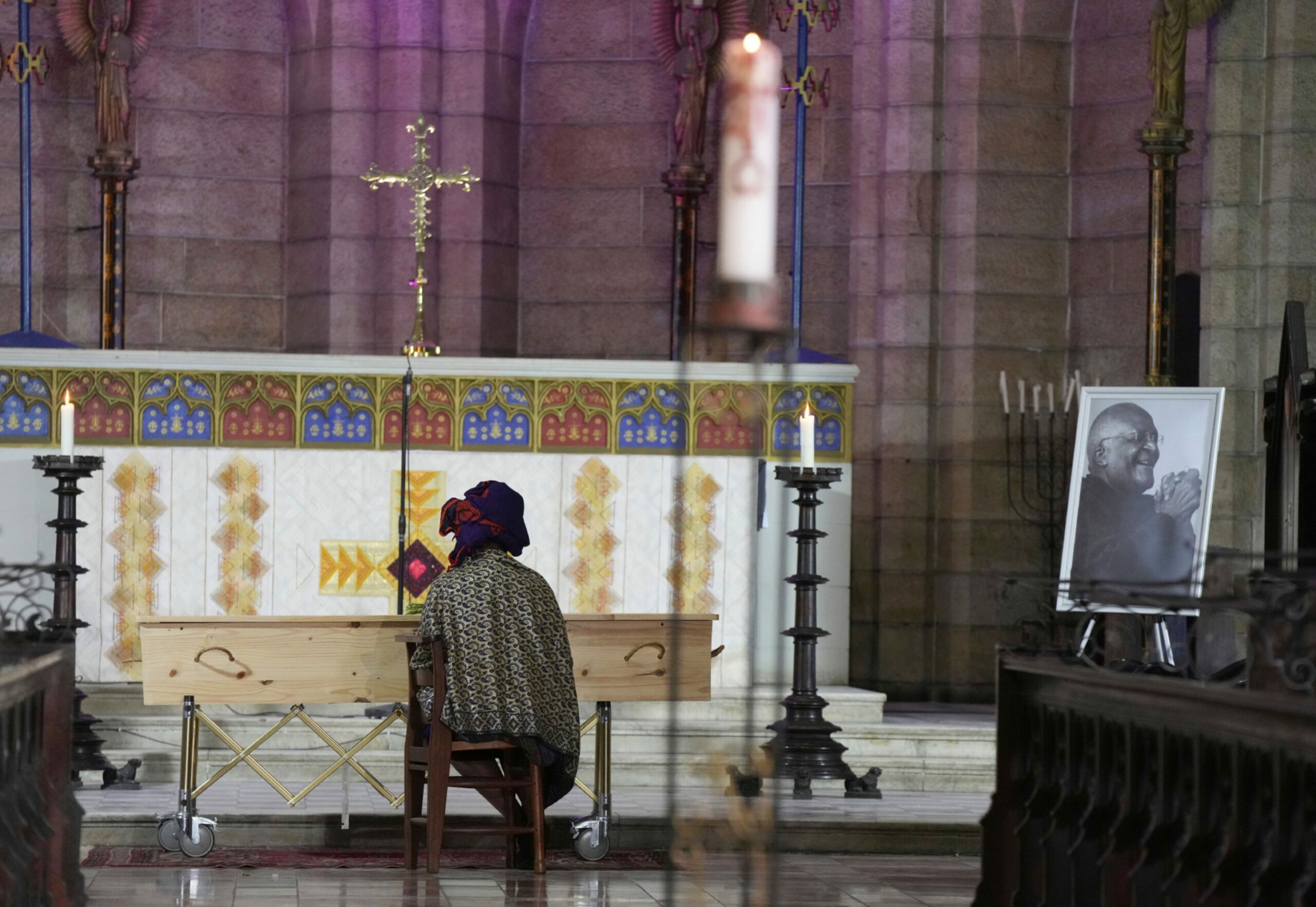
The world joined South Africa in paying tribute to Archbishop Desmond Tutu as a state funeral for the anti-apartheid hero who “lit up the world” took place in Cape Town.
The Nobel Peace Prize winner, who was revered for his role in ending apartheid in South Africa, died aged 90 on Boxing Day.
A requiem mass was held in St George’s Cathedral, Cape Town, where, for years, Tutu had railed from the pulpit against South Africa’s white minority rule.
Tutu, who had suffered ill health for years, had asked for a simple service. His coffin was plain pine, the cheapest available at his request, according to his foundation. Also in accordance with Tutu’s wishes, his coffin was decorated with a single bunch of carnations from his family.
Mourners in the cathedral were restricted to 100 due to Covid restrictions, and included Tutu’s widow, Leah, and his four children. Leah sat in a wheelchair at the front of the congregation wearing a purple shawl, the colour of her husband’s clerical robes.#
South Africa’s president Cyril Ramaphosa delivered the eulogy, describing him as “our moral compass and national conscience”.He said: “Even after the advent of democracy, he did not hesitate to draw attention, often harshly, to our shortcomings as leaders of the democratic state.”
Archbishop of Canterbury Justin Welby, head of the worldwide Anglican church, paid tribute in a video message shown at the service. He said: “When we were in the dark, he brought light. For me to praise him is like a mouse giving tribute to an elephant.
“South Africa has given us extraordinary examples of towering leaders of the rainbow nation with President Nelson Mandela and Archbishop Tutu. Many Nobel winners’ lights have grown dimmer over time, but Archbishop Tutu’s has grown brighter.”
For his funeral, Tutu had picked a guiding passage from the Gospel according to St John in which Jesus addresses his disciples after their last supper: “This is my commandment, that you love one another as I have loved you.”
The cathedral’s bells rang as Tutu’s coffin was taken away after the funeral for a private cremation. His ashes were to be interred at the cathedral.
For decades Tutu was the emblem of the struggle against apartheid with his non-violent opposition to minority white rule.
He won a Nobel Peace Prize in 1984, before apartheid ended in the early 1990s.

Enjoy the convenience of having The Sunday Post delivered as a digital ePaper straight to your smartphone, tablet or computer.
Subscribe for only £5.49 a month and enjoy all the benefits of the printed paper as a digital replica.
Subscribe © Nic Bothma/AP/Shutterstock
© Nic Bothma/AP/Shutterstock